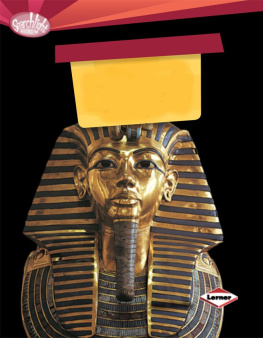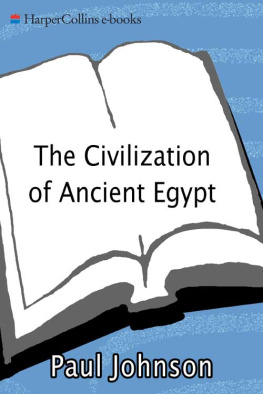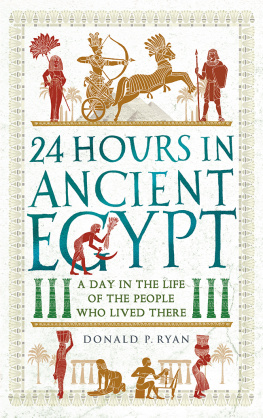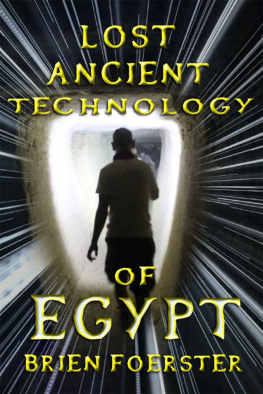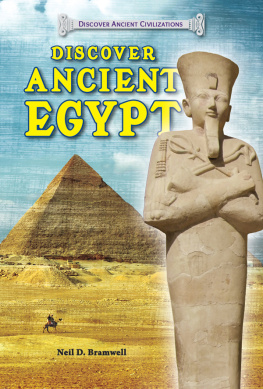
ESOTERIC
EGYPT

An important investigation into the deep prehistory of ancient Egypt and the lost roots of ancient Egyptian spiritual wisdom.
GRAHAM HANCOCK, AUTHOR OF
FINGERPRINTS OF THE GODS
In his last book, Esoteric Egypt, the late John Gordon delves deeply into the origin of ancient Egyptian beliefs and explains the mystery of their symbolism about Man and the Cosmos. It was in Egypt that man first recognized his two dimensions: physical and spiritual. While the body dies, the spirit joins the heavenly beings awaiting resurrection.
AHMED OSMAN, AUTHOR OF
THE LOST CITY OF EXODUS AND MOSES AND AKHENATEN
ACKNOWLEDGMENTS
My thanks must first of all go to those people who bought my first book on the esoteric side of ancient Egyptian culture and were kind enough to indicate that it had opened up for them a completely different and unsuspected perspective on the subject. That they struggled hard initially but followed all the way through, determined to understand the nature of that completely different perspective, is a credit to their tenacity and the sincerity of their interest in the subject itself. Without such a positive reaction, the incentive to go ahead with a sequelalthough this is more of an extension than a sequelprobably would not have been quite so strong. I hope, therefore, that they will find this new work just as rewarding.
For part of the reference background to the book I am indebted to both the British Library and also the library of the Theosophical Society in England. For that on horological issues, I must thank David Thompson of the Horological Department of the British Museum, who answered my extremely puzzling questions (as to clock mechanisms possibly paralleling the workings of the universe) with great courtesy and otherwise pointed me toward a number of agreeably clear reference books of which I was completely unaware.
On Masonic issues, Matthew Scanlan proved a veritable fount of knowledge in response to historically related questions, which then led me in all sorts of other intriguing directions, while Clare Pover, at very short notice, found me several very elusive examples of the three-legged cross in the Isle of Man. Thanks also to Marie Tharp for the use of part of an explanatory map of the Middle East.
For a great many laughs along the way and also for their help while in Egypt, my grateful thanks are due to Robert Bauval and Simon Cox. Further thanks are due to Robert for his helpful comments on the manuscript while in the editing stage, plus the use of a couple of important photographs.
Finally, most grateful thanks are due to Stuart Littlejohn for his line drawings of ancient Egyptian statuary.
INTRODUCTION
This sequel to my last book on Egypt, Land of the Fallen Star Gods, has been writtenlike its predecessorlargely in response to the still active, overfascinated furor surrounding the Pyramids and Sphinx at Giza, which has been to the detriment of understanding ancient Egypt as a whole. The combination of commercially driven media hype, conspiracy theories, psychic voyeurism, and all sorts of inadequately argued new Age speculations, all focused on Giza, has reached a point of near farce. Were some of it not so hilarious in its extent and improbability, it would be desperately sad to witness. Much, however, has occurred as a result of pure reaction to the myopic literalism of those last few generations of Egyptologists who have woefully misrepresented and belittled the metaphors and allegories of Egyptian mysticism as no more than products of mere superstition on the part of the supposedly unevolved minds of ancient humankind, notwithstanding their proven all-around astronomical, engineering, artistic, and architectural genius.
The three main arguments currently centered on Giza revolve around: (a) the actual age of the Sphinx and Pyramids; (b) the originally intended function of the Pyramids; and (c) whether there is a concealed chambera Hall of Recordseither in the Great Pyramid or under the Sphinx (or both) containing either secret (perhaps Atlantean) writings or even ancient magical artifacts or scientific technology. The former are of bona fide scholarly and scientific interest. However, the worlds media, in fastening on to the third (and rather ancillary) issue in their usual unobjective manner, have merely primed the pump of superficial public voyeurism. While perhaps providing them with a lucrative return on the original journalistic and televisual investment, this has simultaneously distracted interest from much more interesting issues. Sadly, the immediate and first casualty or loser in all thisas in warhas been the pursuit of truth, and intelligent objectivity along with it. This book is thus in part aimed at puncturing some of the hype and trying to return intelligently based public debate to the wider subject of what ancient Egypt and its mystic culture were actually all about when viewed against a wider perspective than that offered merely at Giza.
Questioning the Orthodox Approach
With that in mind, a part of this book has been oriented toward looking at the various assumptions made by both Egyptologists and scientists to support their various theories concerning the age of Egyptian architecture and statuary, the length of Egyptian history, and the wholly erroneous supposition that the original Egyptian culture was fundamentally based upon a mixture of superstitious animism, star worship, and morbid fascination with (and fear of) death itself. It was not. As we shall see, the very structure of modern orthodox thought about ancient Egypt looks highly unsound when subjected to close examination. In fact, the presently adopted scholarly technique of trying to shore up Egyptian (theoretical) history by propping it against the even more shaky history of the Hebrew Old Testament is somewhat akin to two drunks trying to remain upright by feverishly clutching at each other, more and more tenaciously yet ever more desperately and precariously. Correspondingly, the current methodology of modern science in trying to find the keys to ancient culture and civilization generally, almost entirely through the use of technological support, is like the same two inebriates, having lost their car keys in the gutter, going and searching for them under the street lamp twenty yards away because that is where the light is.
In Land of the Fallen Star Gods I sought to bring into the field of discussion (concerning Egypts cultural origins) a variety of geological, paleontological, and linguistic factors (as well as various other ancient traditions), which indicated very strongly that the original civilization of Egypt must have been many tens of thousands of years old, and also that its cultural influence must have extended much farther geographically than currently believed to be the case. In this book, I have added several more suggestions and supporting references in the same line. Similarly, in Land of the Fallen Star Gods I tried to open up not only the subject and rationale of sympathetic magic and its use by the Ancients, but also the esoteric methodology of their hierarchical system of gods and goddesses and their associations with particular temples along the Nile. These subjects too are extended and explained in greater detail in this present book, in a manner that I hope will appeal to both the lay mind and that of the open-minded scientist and scholar as well.
However, bearing in mind the extent of criticism I have levied on the views of scientists and scholars in both this book and
Next page

